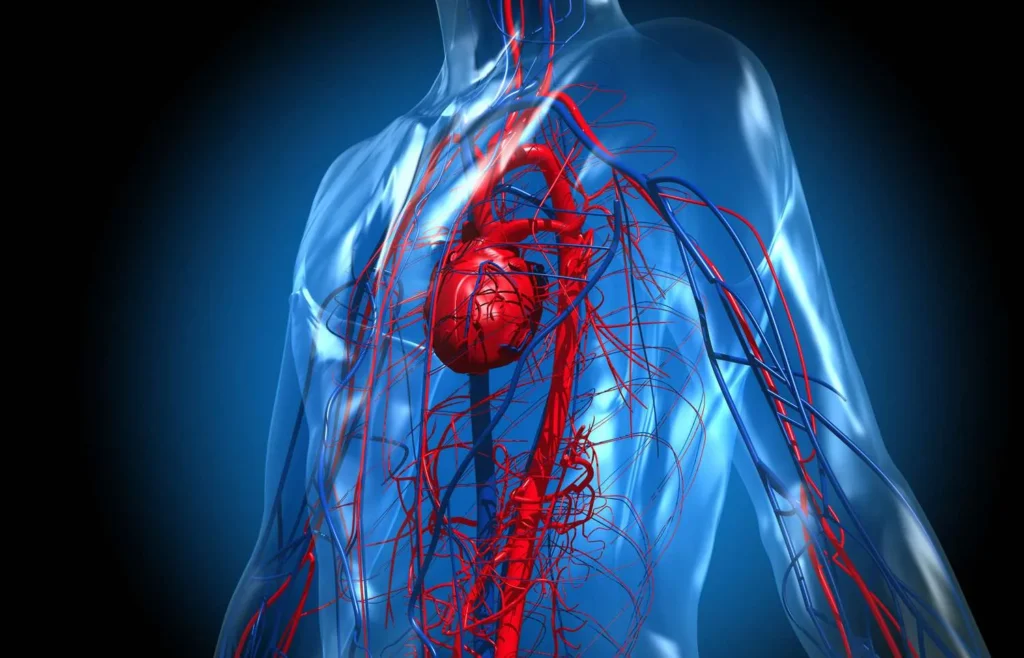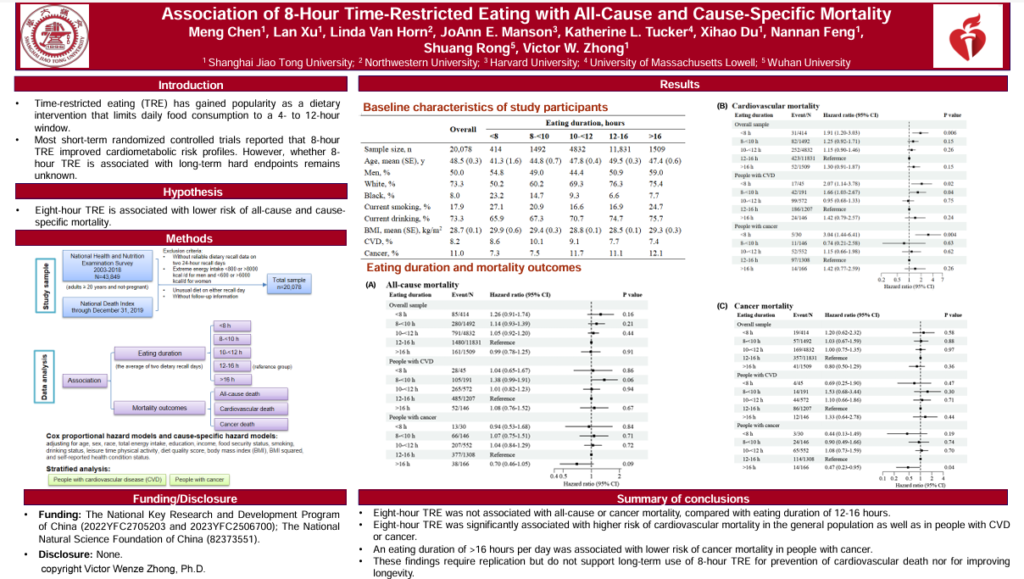The American Heart Association made a concerning announcement on Monday, highlighting intermittent fasting as a potential serious health risk.
According to findings presented at the association’s conference in Chicago this week, adults who follow an eight-hour time-restricted eating schedule may face a 91% higher risk of death from cardiovascular disease compared to those who eat within the typical timeframe of 12-16 hours per day.
Table of Contents
It’s crucial to emphasize that these findings are preliminary, cautioned senior study author Victor Wenze Zhong, who is also the chair of the Department of Epidemiology and Biostatistics at the Shanghai Jiao Tong University School of Medicine in Shanghai, China.

“At the event, Zhong clarified that while the study found a connection between an eight-hour eating window and cardiovascular death, it does not imply that time-restricted eating directly caused cardiovascular death.”
How the study was conducted, what else it showed
Read More: Spring Daylight Savings 2024: when does time spring forward
What the study shows on intermittent fasting and heart attacks
Zhong and his team conducted an independent study involving around 20,000 adults in the U.S. from 2003 to 2018. They utilized data gathered by the Centers for Disease Control and Prevention (CDC) from its National Health and Nutrition Examination Survey. The study analyzed dietary patterns of individuals with an average age of 49 who recorded their food intake for at least two days within a year, as reported by the association.
The data collected from the study was then compared to CDC mortality data from the corresponding time frame.
Of the participants, approximately half identified as women. Among them, over 73% identified as non-Hispanic white adults, 11% as Hispanic, and 8% as non-Hispanic Black adults. An additional 6.9% identified with another racial category.

The findings, published by the American Heart Association, reveal the following details:
- Individuals with an eating pattern of less than eight hours per day faced a 91% higher risk of death from cardiovascular disease.
- The risk of cardiovascular death was also elevated in individuals with pre-existing heart disease or cancer.
- Eating within an eight to ten-hour window per day was linked to a 66% higher risk of death from heart disease or stroke among those with existing cardiovascular conditions.
- Despite its popularity, intermittent fasting did not reduce the overall risk of death from any cause.
- For individuals living with cancer, an eating duration of 16 hours per day or more was associated with a lower risk of cancer mortality.
What Experts say on intermittent fasting and heart attacks
The study did not account for all factors influencing overall health. Future research aims to “investigate the biological mechanisms underlying the associations between a time-restricted eating schedule and adverse cardiovascular outcomes,” as reported by the American Heart Association. Additionally, it’s important to determine whether the findings will remain consistent across different regions of the world.
According to the American Heart Association, research suggests that intermittent fasting could potentially improve cardiometabolic health measures such as blood pressure, blood glucose, and cholesterol levels.
“We were surprised,” Zhong commented. “Our research indicates that, compared to the typical eating window of 12-16 hours per day, a shorter eating duration was not linked to a longer lifespan.”

However, the most crucial aspect of this discovery is the heightened risk for individuals already living with heart conditions or cancer.
Christopher Gardner, director of nutrition studies at Stanford University, emphasized the importance of a cautious and personalized approach to dietary recommendations in light of these findings. He stated, “The nutrient quality of the diets needs to be scrutinized. Without this information, it’s unclear whether nutrient density could provide an alternative explanation to the findings, which currently focus on the timing of eating.”
As always, individuals should consult with a doctor before considering making any lifestyle changes.
It’s important to note that, according to the American Heart Association, news releases and research abstracts are considered preliminary until they are published in a peer-reviewed scientific journal.

